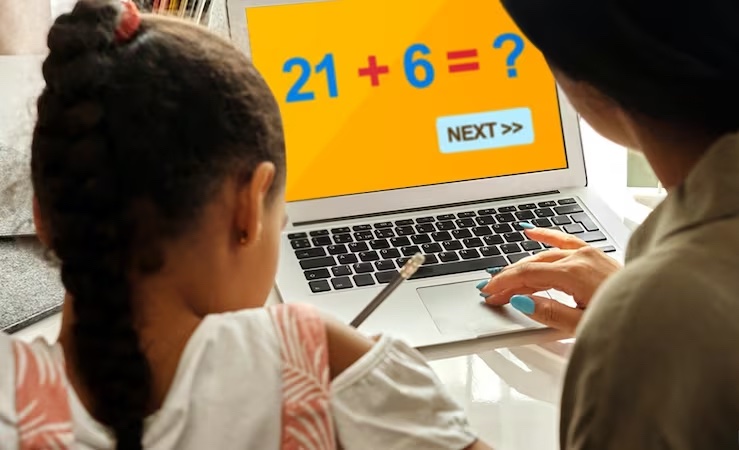In today’s digital age, the realm of education has expanded beyond the confines of traditional classrooms. With the advent of online learning, students now have the opportunity to connect with knowledgeable and experienced tutors from the comfort of their homes. When it comes to mastering the complexities of mathematics, finding the right online math tutor is key to finding success.
In this blog post, we’ll explore the crucial factors to consider when selecting the best online math tutor for your academic journey.
Qualifications and Expertise:
The foundation of a successful online math tutoring experience lies in the qualifications and expertise of the tutor. Look for tutors with strong educational backgrounds in mathematics and relevant teaching certifications. Check for degrees in math-related fields, teaching experience, or any specialized training in online education. This ensures that the tutor not only possesses the subject knowledge but also understands effective teaching methodologies. At the Tutoring Expert, our online math tutors are experienced in teaching content online and have a strong mathematical background.
Interactive Teaching Methods:
Effective online math tutoring goes beyond one-way communication. A great tutor employs interactive teaching methods that engage students actively. Look for tutors who incorporate multimedia resources, interactive whiteboards, and real-life examples to make abstract mathematical concepts more tangible. The ability to adapt teaching styles to suit individual learning preferences is a hallmark of a skilled online math tutor. Our online math tutors use a variety of multimedia tools including Bramble, an online platform specifically designed for tutoring.
Proven Track Record:
Before committing to an online math tutor, take the time to review their track record. Reputable tutors and tutoring agencies often have testimonials or reviews from past students and parents. Platforms that connect tutors with students may also have rating systems, providing valuable insights into the tutor’s effectiveness. A tutor with a history of successfully helping students grasp math concepts can instill confidence in their ability to assist you.
Customized Lesson Plans:
Every student is unique, with different learning styles and paces. The best online math tutors recognize this diversity and tailor their lesson plans accordingly. At The Tutoring Expert, we match you with a tutor who assesses your strengths, weaknesses, and learning preferences to create a personalized curriculum. This ensures that the tutoring sessions are not only effective but also cater to your specific needs.
Availability and Flexibility:
Different availabilities and busy schedules can be obstacles to effective online tutoring. Ensure that the online math tutor you choose can accommodate your schedule. Some tutors may offer flexible hours, allowing you to receive guidance when it’s most convenient for you. Clear communication about availability and scheduling expectations will contribute to a smoother learning experience. Here at The Tutoring Expert, we note down your schedule preferences and only match you with a tutor who can support you given your availability.
Technology and Platform:
The right technology can significantly enhance the online tutoring experience. Confirm that the tutor is proficient in using the chosen online platform and tools. A stable internet connection, a user-friendly interface, and reliable communication tools are essential for a seamless online learning experience. The tutor’s proficiency in leveraging technology will contribute to a more effective and efficient learning process.
Trial Sessions:
The Tutoring Expert offers a free 30-minute consultation session with our online math tutors. This is a trial session to get to know the tutor, discuss academic goals, and try out the online tutoring platform. Take advantage of these opportunities to assess the tutor’s teaching style and determine if there is a good rapport. Trial sessions provide a firsthand experience of the tutor’s approach, enabling you to make an informed decision before committing to a longer-term arrangement.
Conclusion
Choosing the best online math tutor is a pivotal decision that can significantly impact your academic success. By considering factors such as qualifications, teaching methods, track record, customized lesson plans, availability, technology proficiency, and trial sessions, you can navigate the plethora of options and find the perfect match for your learning needs. Remember, the right online math tutor can unlock the door to mathematical proficiency and set you on the path to academic excellence. Contact us today to get started!


